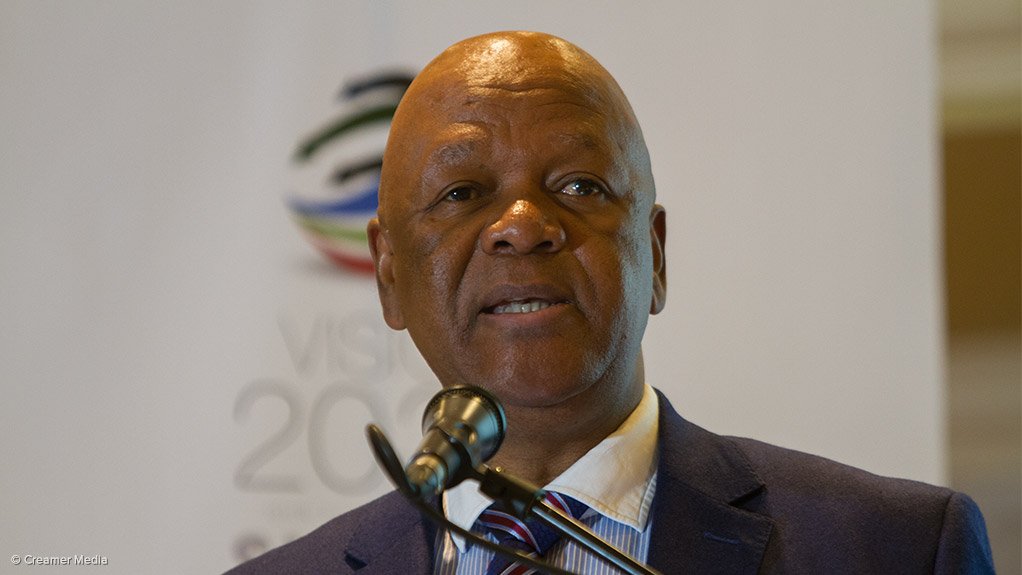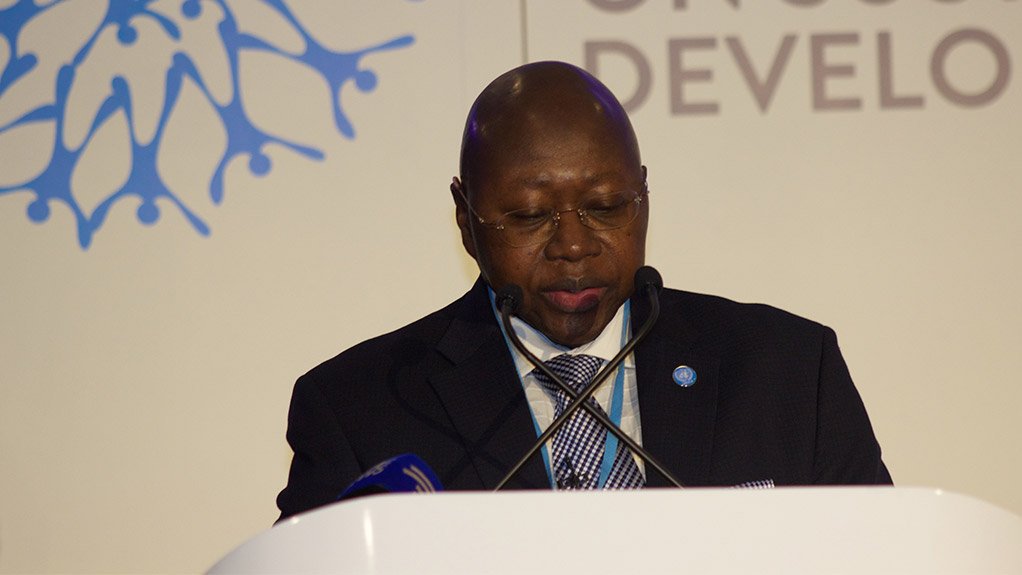Countries worldwide are facing many substantial challenges at this critical juncture in history. Therefore, there is a vital need to ensure accelerated inclusive growth to achieve the 17 sustainable development goals (SDGs) of the 2030 Agenda for Sustainable Development, which were adopted by world leaders in September 2015.
This is according to Minister in the Presidency for Planning, Performance Monitoring, Evaluation and Administration Jeff Radebe, who was addressing delegates, via a prerecorded video message, at the Responsible Business Forum on Sustainable Development, in Johannesburg, on Thursday.
The goals include the ending of poverty; ending hunger by achieving food security and improved nutrition through the promotion of sustainable agriculture; ensuring healthy lives and promoting wellbeing; ensuring inclusive and equitable quality education and promoting lifelong learning; achieving gender equality and empowerment of women and girls; achieving availability and sustainable management of water and sanitation; ensuring access to affordable, reliable, sustainable and modern energy; and the promotion of sustained, inclusive and sustainable economic growth, full and productive employment and decent work.
Additionally, they include the building of resilient infrastructure, promoting inclusive and sustainable industrialisation and fostering innovation; the reduction of income inequality within and among countries; the establishment of cities and human settlements that are inclusive, safe, resilient and sustainable; ensuring sustainable consumption and production patterns; taking measures to address climate change, and ensure the conservation and sustainable use of the world’s oceans, seas and marine resources; protecting, restoring and promoting sustainable use of terrestrial ecosystems; the promotion of peaceful and inclusive societies for sustainable development; and strengthening the means of implementation and revitalising the global partnership for sustainable development.
Radebe said South Africa, like the rest of the world, was looking for new solutions to ensure better transitions that would provide more meaningful and impactful outcomes. “The challenges we face cannot be solved by governments alone, therefore, it is critically important that the private sector and civil society partners work with State authorities to achieve these targets.”
He remarked that the SDGs represented an “unprecedented” opportunity to rapidly advance growth in South Africa and the rest of the continent, which would bring countries, businesses and people together, thereby securing a better standard of living for all in Africa.
Radebe noted that the increased levels of economic inequality, poverty and unemployment, particularly among the youth, had to be dealt with as a matter of national urgency, and was paramount to the fulfilment of these goals.
Moreover, United Nations Development Programme Africa regional service centre director Lamin Manneh told the conference that the SDGs constituted a blueprint for a highly ambitious global development agenda.
He said that a recent study produced by the Business & Sustainable Development Commission estimated that the realisation of the SDGs would create economic development of about $12-trillion by 2030 for the private sector and potentially even two to three times this.
“This should act as a motivation for the private sector to become more active in the implementation of the SDGs, particularly in Africa,” Manneh highlighted.
EMAIL THIS ARTICLE SAVE THIS ARTICLE ARTICLE ENQUIRY
To subscribe email subscriptions@creamermedia.co.za or click here
To advertise email advertising@creamermedia.co.za or click here













